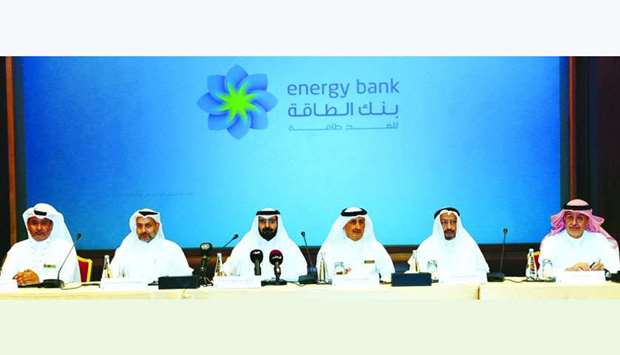*The QFC-based Islamic bank is expected to be operational by the fourth quarter of this year
Qatar will launch 'Energy Bank' with a targeted capital of $10bn to fund hydrocarbon-centric projects across the world, a move that will make Doha a leading player across verticals in the global oil and gas industry.
The Qatar Financial Center (QFC)-based bank, which already has got commitments to the tune of $2bn from international investors (of the $2.5bn paid up), will progressively scale up its capital base to become the world’s largest Islamic lending institution. It is expected to be operational by the fourth quarter of this year.
The lender, which is planning to have representative offices in the Middle East and North Africa region and other parts of the world, will specialise in funding projects related to oil and gas, petrochemicals and renewable energy. It will offer competitive and innovative products, corporate and project financing, as well as asset management services.
“The bank will further Qatar’s firm financial stance and will make us a significant key player on the global energy scene, a catalyst of growth in the regional energy sector, and enabler of energy innovation,” said Khaled bin Ahmed al-Suwaidi, chairman of the founding committee of Energy Bank.
Mohamed al-Marri, head of Energy Bank's media committee, declined to specify how or when it intends to raise its capital to the $10bn target.
He said the bank is exploring options on holding international roadshows in order to attract international investors.
The establishment of the bank comes at a time when Qatar is expanding its annual liquefied natural gas production by 40% to 110mn tonnes by 2024.
The bank is being established by a team of experts specialised in the banking and energy industries bringing to the table their wide expertise, local and international relations, technical capabilities, and knowledge in the energy sector.
“The Energy Bank is the latest of several major international banks to join the QFC’s unique platform and we will work closely with them to ensure their success well into the future,” QFC Authority chief executive Yousuf Mohamed al-Jaida said.
Highlighting that Qatar’s energy and Islamic finance industries are poised for incredible growth in the coming years, he said this underlines the utmost necessity and relevance of the Energy Bank, which operate at the intersection of these two fast-growing industries, and will undoubtedly offer much needed support to the development of these sectors both locally and internationally.
Islamic finance assets are forecast to be worth $3.2tn by 2020, while the global energy industry is also forecasted to grow exponentially, particularly renewable energy which has continued to grow despite hurdles faced by traditional oil and gas, he said, quoting Thomson Reuters.
The lender, which is planning to have representative offices in the Middle East and North Africa region and other parts of the world, will specialise in funding projects related to oil and gas, petrochemicals and renewable energy. It will offer competitive and innovative products, corporate and project financing, as well as asset management services.
“The bank will further Qatar’s firm financial stance and will make us a significant key player on the global energy scene, a catalyst of growth in the regional energy sector, and enabler of energy innovation,” said Khaled bin Ahmed al-Suwaidi, chairman of the founding committee of Energy Bank.
Mohamed al-Marri, head of Energy Bank's media committee, declined to specify how or when it intends to raise its capital to the $10bn target.
He said the bank is exploring options on holding international roadshows in order to attract international investors.
The establishment of the bank comes at a time when Qatar is expanding its annual liquefied natural gas production by 40% to 110mn tonnes by 2024.
The bank is being established by a team of experts specialised in the banking and energy industries bringing to the table their wide expertise, local and international relations, technical capabilities, and knowledge in the energy sector.
“The Energy Bank is the latest of several major international banks to join the QFC’s unique platform and we will work closely with them to ensure their success well into the future,” QFC Authority chief executive Yousuf Mohamed al-Jaida said.
Highlighting that Qatar’s energy and Islamic finance industries are poised for incredible growth in the coming years, he said this underlines the utmost necessity and relevance of the Energy Bank, which operate at the intersection of these two fast-growing industries, and will undoubtedly offer much needed support to the development of these sectors both locally and internationally.
Islamic finance assets are forecast to be worth $3.2tn by 2020, while the global energy industry is also forecasted to grow exponentially, particularly renewable energy which has continued to grow despite hurdles faced by traditional oil and gas, he said, quoting Thomson Reuters.


